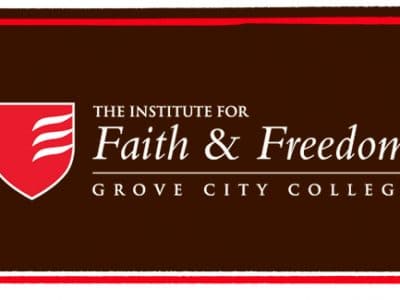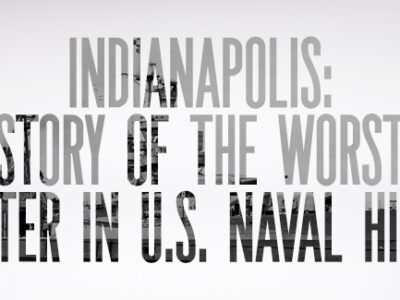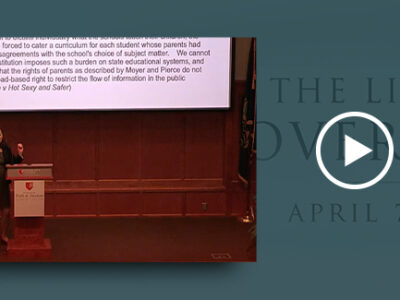EDITOR’S NOTE: On Sept. 27, 2005, Dr. Richard Pipes, the acclaimed Russian historian and Harvard professor of Sovietology, visited Grove City College at the invitation of The Center for Vision & Values to deliver the annual J. Howard Pew Lecture. Pipes sat for an interview with Dr. Paul Kengor, executive director of The Center for Vision & Values and associate professor of political science at Grove City College.
Interview
Kengor: Dr. Pipes, you were born in Poland on July 11, 1923. As a 16-year-old Jew at the time of Hitler’s invasion, you escaped the country, thanks to a very clever and wise father. You credit not only your father for your survival but also Providential intervention. In your recently published memoirs, Vixi: Memoirs of a Non-Belonger, you wrote: “The main effect of the Holocaust on my psyche was to make me delight in every day of life that has been granted to me, for I was saved from certain death. I felt and feel to this day that I have been spared not to waste my life on self-indulgence or self-aggrandizement but to spread a moral message by showing, using examples from history, how evil ideas lead to evil consequences. Since scholars have written enough on the Holocaust, I thought it my mission to demonstrate this truth using the example of communism.” In your memoirs, you say that rather than causing you to lose your faith, as you note that it did for many Jews, the horror of the Holocaust actually served to reinforce your faith. Explain that.
Pipes: What the Holocaust taught me – as did communism – is that the denial of God can lead to genocide. There is a German scholar who wrote that one of the main reasons for Hitler’s ravenous anti-Semitism was that Judaism was the first religion to believe in the sanctity of human life. Judaism says that human beings are made in the image of God. That stood in the way of Hitler’s hatred and desire to kill people. As Stalin is reported to have once said, “No people, no problem.”
Kengor: Quite the contrary, you said that your father lost his faith because of the Holocaust?
Pipes: I’m afraid so. He was a very brave, shrewd man. But the Holocaust had the opposite effect on him. [He asked:] “How could God allow this to happen?”
Kengor: Switching from Nazi crimes to Soviet crimes, one of the most appalling things done by the Bolsheviks and communists generally was their brutal persecution of religious believers. If you ask any survivor of the Soviet period about this persecution, they will talk at length, sharing horrendous stories. And they seem bitter that very little information on this persecution has made its way into historical accounts of the era. Have historians generally ignored this?
Pipes: Yes. In fact, in Russia Under the Bolshevik Regime, I devoted a full chapter to the persecution of the Church. To my knowledge, this was the only history of the Russian revolution to include that focus. In [Edward H.] Carr’s history and others, there’s virtually nothing on the subject. … Russia was a very religious country. It’s quite true that the subject has received little to virtually no attention from scholars.
Kengor: Why did the Bolsheviks attack religion and the Church?
Pipes: They persecuted the Church because they believed it was pro-monarchist and because they believed it was spreading superstition [i.e., belief in God] rather than scientific knowledge. … They wanted to try to remove religion altogether, and for many reasons. Among them, of course, ideologically they saw religion as a competitor. Also, religion teaches us to love our fellow human beings. To the contrary, the driving emotional force in communism was hatred, not love. Hatred of certain classes in particular. They preached hatred.
Kengor: Academic historians have done an extremely thorough, commendable job documenting the horrors and crimes of the fascist Nazis but not the communist Bolsheviks. Why is that?
Pipes: This is quite true. And the answer is difficult. One reason is that many of them [academic historians] politically agree, at least in theory, with many of the goals of the communists: equal distribution of wealth and income equality, for example. Certainly this is one reason. In practice, though, they [communist regimes] achieved none of this. In practice, communism was sheer barbarism. Intellectuals love ideas, and they loved many of these ideas. So they tolerated even many of the negatives of communism. When I pointed out many of these negatives in The Russian Revolution, I was accused of being bitter and unduly harsh.
Kengor: That’s an accusation that historians of the Nazis were never charged with.
Pipes: Yes, that’s right.
Kengor: What explains this double standard? This bias within academia? This unwillingness to dwell on the evils of Bolshevism and communism generally? I heard an interview with Robert Conquest, who said that while the reason is rooted in the leftist bias of academics, it is not the result of pro-communism by these academics but, rather, the result of “anti-anti-communism.” In other words, said Conquest, they dislike the anti-communists. In fact, it seems they detest the anti-communists and view them in much lower repute than even the communists. Does anti-anti-communism explain this?
Pipes: Yes, that’s quite right. They consider anti-communism and anti-communists to be vulgar and simple-minded. There are very few communists [among these academics], but many, many anti-anti-communists. Plus, they say they need to be impartial in dealing with the Bolsheviks, for example, rather than condemning them in their scholarship – which, in actual effect, in practice, can mean being supportive. … They were rightly partial in dealing with Auschwitz, while, in many cases, ignoring the gulag.
Kengor: When I speak at universities on the subject of Bolshevik crimes and the Soviet war on religion, and I list death tallies and share horrific quotes from Lenin and Stalin, most of the audience is riveted, as if I’m providing completely new information (which I am), whereas professors in the crowd sometimes glare at me with contemptuous looks, as if the ghost of the late Joe McCarthy has flown into the room and leapt inside my body.
Pipes: That’s not a surprise.
Kengor: You say that there is more to the question of this Nazi-Bolshevik double standard among academic Sovietologists; that the question is complicated, and there’s more to the answer. Could you elaborate?
Pipes: Well, it is a very complicated question. … Again, one reason why intellectuals are so much more obsessed with Nazi crimes than Soviet crimes – even though in terms of human lives lost the Soviets way exceeded the Nazis – is that intellectuals, by the very nature of their professions, grant enormous attention to words and ideas. And they are attracted by socialist ideas. They find that the ideas of communism are praiseworthy and attractive; that, to them, is more important than the practice of communism. Now, Nazi ideals, on the other hand, were pure barbarism; nothing more could be said in favor of them. In the case of the Soviet Union, [intellectuals] could say, “Well, yes, the practice of Soviet communism was perhaps quite bad, but the ideas are wonderful; and if we did not disturb the Soviets and did not fight them or resist them but, instead, helped them, they might have realized these ideas.”
A second reason is that Germany is in the heart of Europe; it is one of the great civilizations of Europe. Therefore, what happens there affects us in the West far more than what happens in outlying areas. Russia is on the periphery of Europe. We see this today, where there are horrible atrocities committed in the Third World and we don’t get very upset about them. If what happened in Russia under the communists had happened in a Western European country, everyone would have been upset by it.
Kengor: In 1981 and 1982 you joined the Reagan National Security Council as director of the East European and Soviet Affairs division, first under Richard V. Allen and then under William P. Clark. Who was responsible for bringing you on to Ronald Reagan’s team?
Pipes: Richard Allen was responsible. He brought me to the NSC. The reason I ultimately left was that my two-year leave of absence from Harvard expired. There are no exceptions to that policy. Harvard enforces that policy regardless of the person and accomplishment.
Kengor: Were you tired of Washington?
Pipes: My time in Washington was a great experience, but I did not regret leaving. There is an independence in academia that one does not have in Washington. In academia, an article or book that I write is rightly interpreted as “Pipes says … .” On the other hand, in government, personal observations were represented as “the Reagan administration says … .”
Kengor: Shifting gears – were you surprised by the reaction to the death of Ronald Reagan?
Pipes: The outpouring of affection for Reagan was astonishing. I was amazed. I was especially moved when Mikhail Gorbachev reached out and touched the casket.
Kengor: How important was Mikhail Gorbachev? Had Yuri Andropov lived, would all of this – the fall of communism, the Soviet breakup, the end of the Cold War – have happened?
Pipes: No. Gorbachev was very important.
Kengor: You reviewed his 1987 bestselling book, Perestroika. Anyone reading that book and taking it at face value had no option other than to view Gorbachev as a hopeless communist who literally adored Lenin. You reviewed the book at the time, and you were one of the few that read it carefully and described it accurately, and took a lot of heat for doing so.
Pipes: Yes. It was an awful book.
Kengor: But, in retrospect, that book probably wasn’t the real Gorbachev? Did Gorbachev talk like a devout communist in that book in order to mollify hardliners and keep his job?
Pipes: Closer to the truth was something that happened later, after the Cold War ended. I was at a conference where Gorbachev’s close aide, Alexander Yakovlev, was speaking. Yakovlev said that by 1988, only three years after Gorbachev had come to power, Gorbachev and his associates concluded that the communist system was not “reformable” and had to be abolished. So, Gorbachev then performed a major historical task.
Kengor: What about Gorbachev’s wife Raisa? I don’t think she ever changed – a devout Leninist ‘til the very end.
Pipes: It’s interesting about Raisa: Gorbachev’s daughter told me that her mother died of a broken heart because of the way her father was treated by Yeltsin. She felt he did so much for Russia but was treated badly.
Kengor: What’s your appraisal of Boris Yeltsin and his presidency?
Pipes: I think he was the right man at the right time. But, of course, that time has past. Overall, he was very good. However, I blame him for appointing [Vladimir] Putin, a KGB bureaucrat, to power. On the plus side, when it comes to internal Russia, Yeltsin was very good. By opening the [Soviet] archives, Yeltsin helped himself politically at the time by implicating the Russian Communist Party [his main competitor] in the crimes of the past. However, this was also helpful in that it halted the chances of the communists returning to power, by exposing their past crimes.
Kengor: Your book on the Lenin letters, The Unknown Lenin, was so crucially important in exposing the real Lenin, the monstrous Lenin, and what Lenin was all about.
Pipes: But it got almost no attention.
Kengor: No attention?!
Pipes: No. The book did not sell many copies. That’s because it depicted Lenin as he really was. And the whole establishment [including academic Sovietologists in the West] wanted to depict Lenin as an idealist who was betrayed by Stalin. So, when you have these letters that show how cruel Lenin really was … they simply didn’t want to talk about it. One reviewer on Amazon actually said that I fabricated the letters! Others said, “Well, you show only the nasty side of Lenin. …” I was told there were over 3,000 unpublished Lenin documents available. I saw only 500 to 700.
Kengor: What’s your view on Putin and Russia’s prospects for a democratic future?
Pipes: I had high hopes that after the dissolution of the communist regime, Russia would take the path of democracy – imperfect, but a democratic path nonetheless. Instead, they went right back to autocracy. I have no hopes now. There is a move right now in the parliament to amend the constitution to allow Putin to stay in office beyond his two-term limit. There are many Russian citizens, two-thirds in one recent poll, who favor dictatorship. Russia 10 to 20 years from now will be a kind of a mild dictatorship. If Russians elect their leaders, they will likely do so in skewed elections.
Russians want a very strong government to protect them. If you ask them what’s more important – freedom or security, they overwhelmingly choose security, at ratios of 8.5 to 1. I have the statistics. This is the complete opposite of Americans. One observer said that Russians live in trenches. They see freedom as anarchy and crime and believe it can hurt them. But personal security is their number one issue. And Putin offers it to them. And he is by and large popular, with support of 60 to 70 percent of Russians.
Of course, Russia today is certainly better than it was under the communist regime. People can travel abroad, can read foreign publications, can listen to foreign broadcasts. But it is not a democracy. It’s not what we hoped for. It’s an autocracy. Not a tyranny. Not a totalitarian regime. An autocracy. Communism, if not dead, is dying; only some of the older generation want it. Nationalism, however, is not dead, and autocracy is not dead. They’re going back to the 19th century. It is a very discouraging picture.
The economic system is a kind of half-baked capitalism. There has been a massive shift in wealth from the public sector to the private sector. Three quarters of all the Gross Domestic Product comes from the private sector. But the government is encroaching on the private sector; it has a virtual monopoly on energy, which is the main export. It does not respect private property. It appropriates things very easily and it threatens people who have money with all kinds of punishments if they meddle in politics. So the economic system is a kind of bastard capitalism, not genuine capitalism.
The political system is similar in that it is a quasi-democracy. … They have elections but basically the executive controls the legislative. All three principal national TV channels through which most Russians get most of their news are under government control. If any newspaper criticizes the government too sharply, its editor is dismissed. According to the Russian constitution, the President can only serve two terms, but there is already talk in the Duma [the Parliament] that he should be begged to run for a third term, that it is undemocratic to deny the people the right to vote for a man they want just because he has served two terms. Putin repeatedly says that he will not run for a third term, but I would not bet on that.
So you have a kind of sloppy capitalism and a sloppy democracy, which is going to deteriorate rather than improve.
Kengor: What about modern Russia’s relationship with the United States?
Pipes: Russia today is obsessed with the United States, just as it was in the Soviet days. They feel as if the United States would deprive them of the status of a great power, and would reduce them to the status of a Third World power. They would like in some way to counter us. They cannot do it themselves; they do not have the economic means, nor the military means. So they are seeking alliances with Europe. They have very good relations with Chancellor [Gerhard] Schroeder in Germany. And they hope that perhaps they can somehow attach themselves to the European Union and form a counterbalance to the United States. But they are also looking to the east, to China. With the Chinese, they have a sense of common interest.
Kengor: Dr. Pipes, thanks for talking to us and for coming to Grove City College.
Pipes: Thank you.
Afterword: Dr. Richard Pipes’ efforts, along with those of his colleagues in the Reagan Administration, distressed the U.S. State Department, which regarded Pipes as advocating a policy of meddling in internal Soviet affairs. Soviet journalist Grigori Dadyants, in a March 1983 piece titled “Pipes Threatens History,” agreed. “Directive 75 speaks of changing the Soviet Union’s domestic policy,” wrote Dadyants. “In other words, the powers that be in Washington are threatening the course of world history, neither more nor less.”
In addition to being unpopular in Moscow and at Foggy Bottom, Pipes stirred the wrath of columnist Mary McGrory. In an April 1982 Washington Post op-ed, she crowned him the new “Dr. Strangelove” and wrote of “the howling wilderness that is the mind of Richard Pipes.”
Not even 10 years after the publication of McGrory’s article and the State Department’s protests over NSDD-75, the Cold War was over and the Soviet Union no longer existed.




